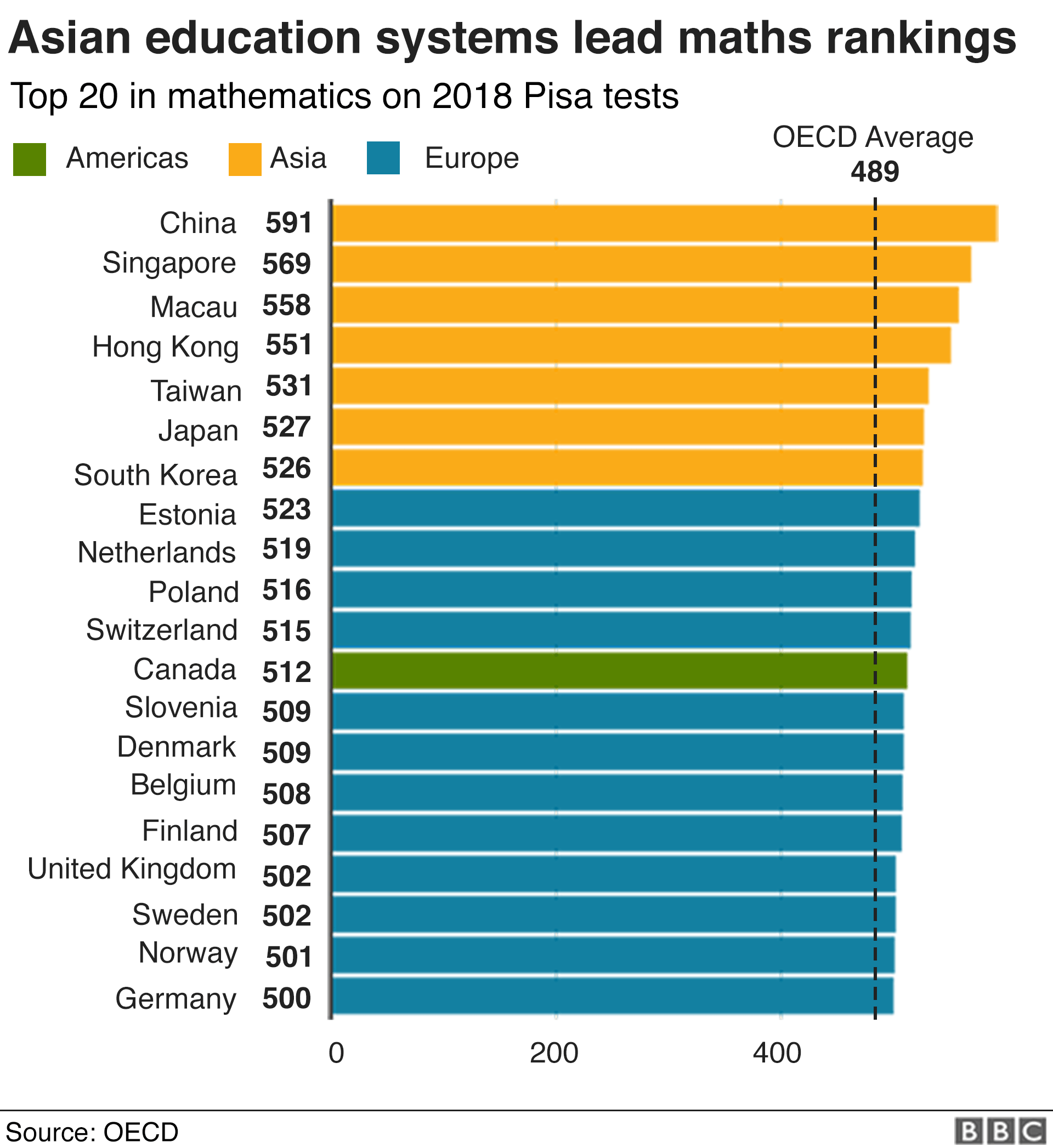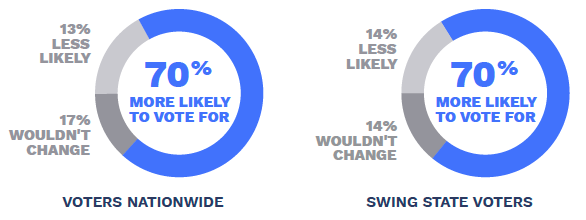
Introduction
A few months ago, president Biden announced his plan to implement universal childcare for toddlers. With a proposed $110 billion budget, this plan would bring upon the unprecedented move of adding another grade level to the K-12 system in America. Citing evidence that suggests pre-K enrollment improves students’ overall educational experience, readiness, and quality of life for years to come, Biden’s plan is certainly ambitious- but will it work?
Early Childcare Across the World

The graphic above from the New York Times shows the average amount of government money spent per toddler in several developed countries across the globe. In many of the countries listed above, childcare is heavily, if not entirely, subsidized for young children. In Denmark, for example, childcare is guaranteed, and the government will even provide monetary assistance to households who choose to homeschool their toddlers. The graphic below (generated by the BBC), shows average performance by country on the math and reading portions of the PISA exams (exams meant to compare academic readiness across the globe).


Based on a composite of these scores, it appears as if there is a correlation between governmental pre-K assistance and later academic readiness, at least on an international level.
The Debate in America
Currently in the United States, about 48% of all children three and four years old are enrolled in pre-K programs, according to data from the National Center for Education Statistics. Additionally, universal primary education is rare bipartisan issue in American politics- according to the First Five Years Fund, the majority of voters-regardless of political affiliation-showed support for some level of universal pre-primary education. In fact, there have been past initiatives as recent as the Obama administration and as old the the 1970s to fund universal pre-K. So why isn’t it law yet?


For one, as mentioned previously, it is a massive undertaking. According to research done by Rutgers, it would require the addition of 40,000 new teachers to fully accomplish (and this number doesn’t even account for all the additional roles that must be filled, such as administrators, assistants, or bus drivers). In addition, there is conflicting evidence on whether universal pre-K even accomplishes anything long-term. For example, the Department of Health and Human Services found that the benefits from Head Start (an early education program founded in the 1970s), were gone by second grade. Other studies have shown, however, that students who went through Head Start had more stable lives as adults, reporting lower rates of crime, dropping out, and mental health issues. Advocates say that the benefits of preschool are not only felt by the children, but by the whole community. For example, after Washington DC introduced universal childcare, low-income mother labor force participation rate rose 15%.
It’s kind of interesting to think that we have a public school system that doesn’t include before kindergarten; why did they decide that pre-K wasn’t part of school? I wonder if the government saw that pre-K “school” was more baby-sitting than actual education, and it might not make sense to have universal baby-sitting when that is also an integrated field in our country. However, I’m definitely interested to look more into this topic! Great post
The idea of universal Pre-K is a really nice one. A system where parents don’t have to be worried about where there child has to go for the day when they are young. There are certainly a lot of benefits to the systems for young parents who aren’t as well off. Also must voters are in support of universal Pre-K. Our nation is behind in many things seen as standard throughout he world it is somewhat shocking.
The graph about how much each governments spends on toddlers is astounding. The amount that the United States spends compares to any other nation is significantly lower, even though it seems as if governmental pre-K assistance leads to a better education later on. It is good to see that most people of all political backgrounds support this type of educational assistance, but I can also see that it will take so much to make it work, such as with the hiring of teachers and filling other roles. I do think that in the long term, it will be beneficial to invest.